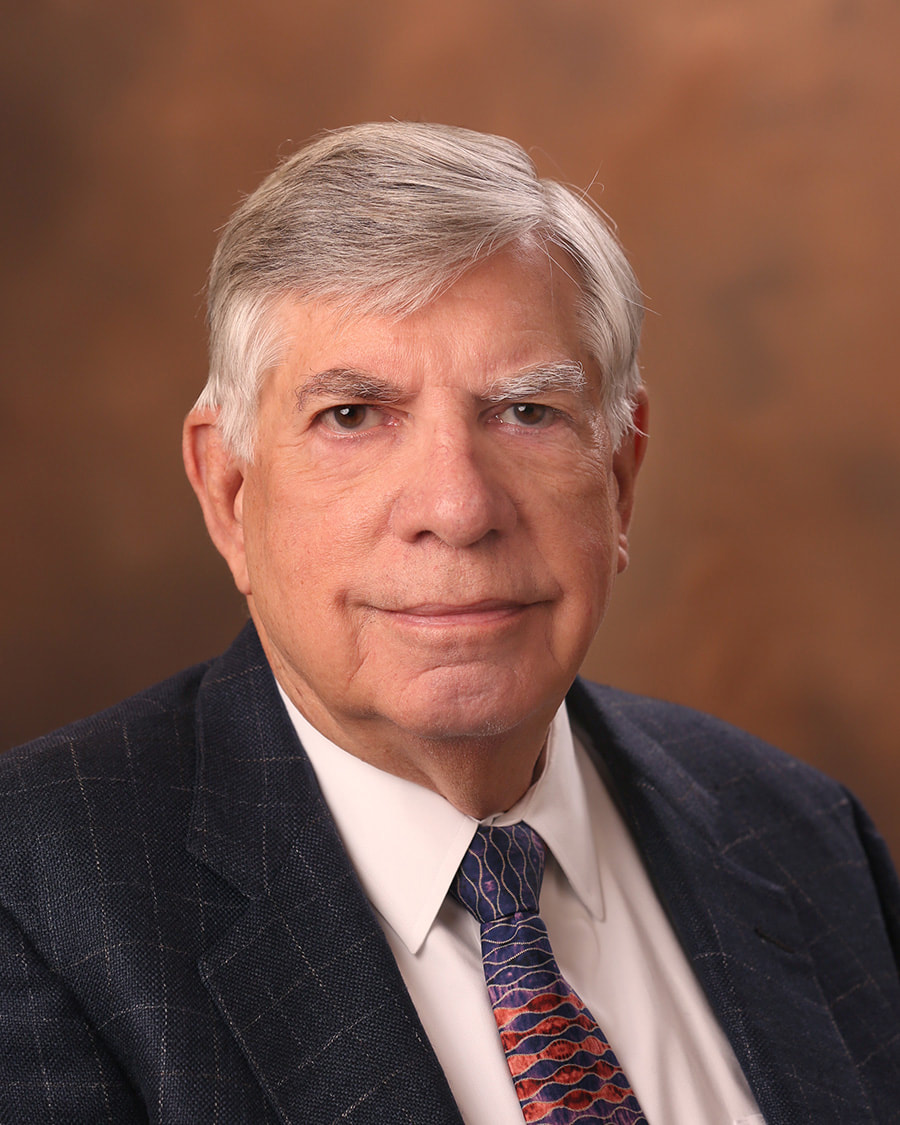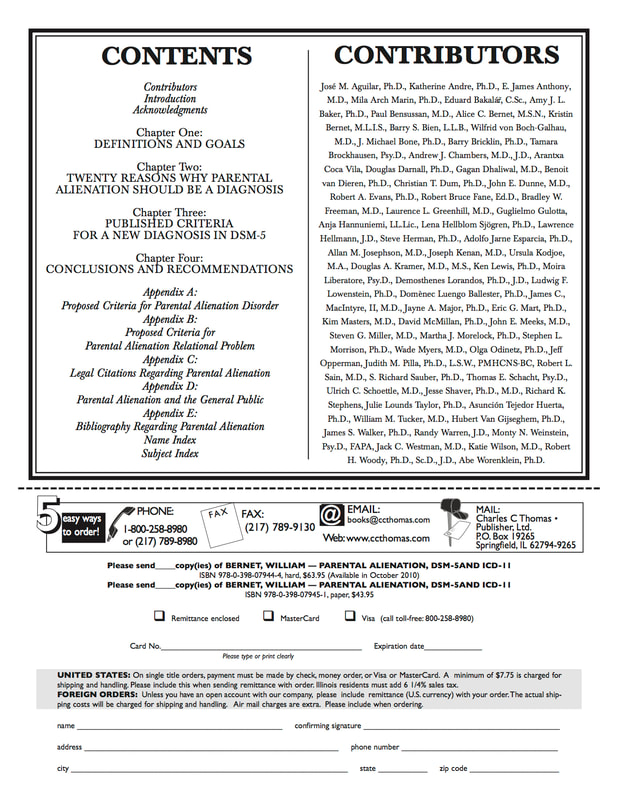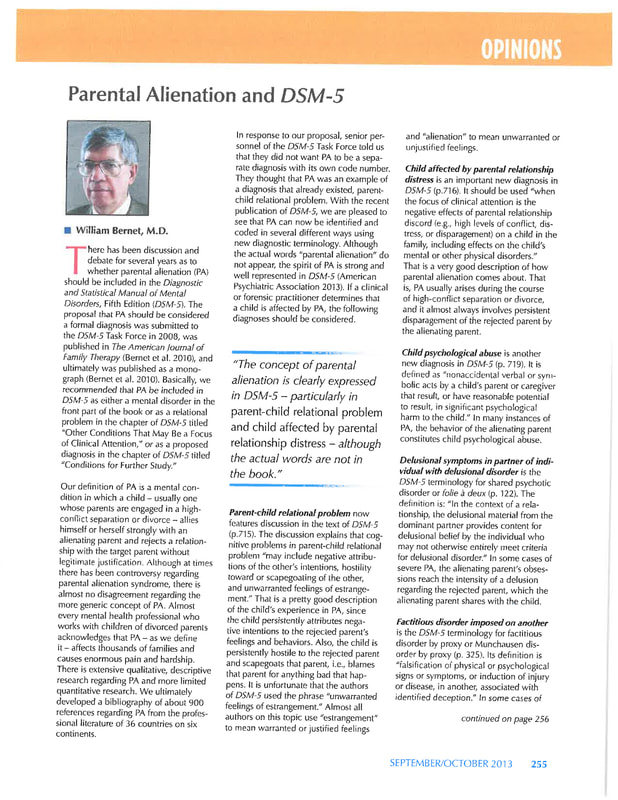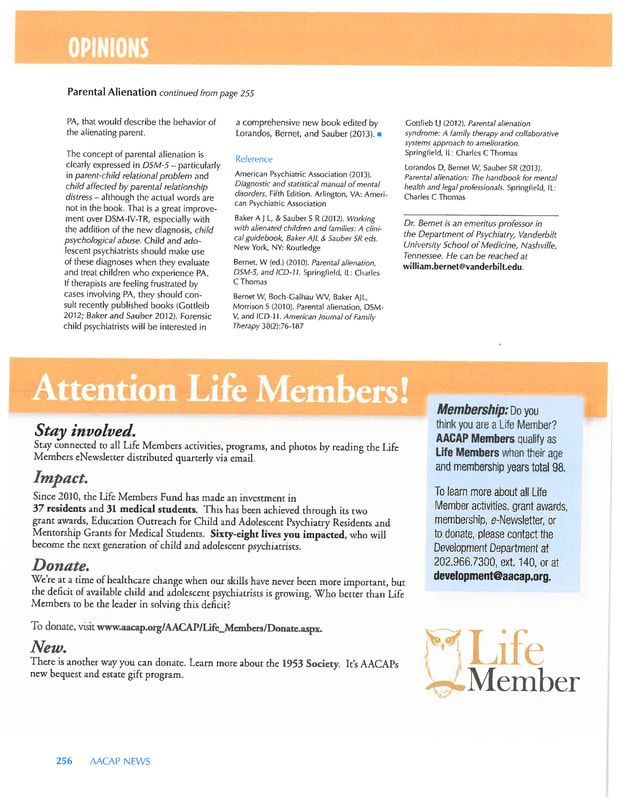WILLIAM BERNET, M. D.

William Bernet, M.D., a graduate of Holy Cross College, summa cum laude, and Harvard Medical School, is a professor emeritus at Vanderbilt University School of Medicine. He is board certified in general psychiatry, child psychiatry, and forensic psychiatry. As an expert in forensic psychiatry, Dr. Bernet has testified about 300 times in 24 states. Dr. Bernet has written professional articles and book chapters on a variety of subjects, including: group and individual therapy with children and adolescents; humor in psychotherapy; forensic child psychiatry; child maltreatment; true and false allegations of abuse; satanic ritual abuse; reincarnation; child custody and visitation; parental alienation; testimony regarding behavioral genomics; and risk management. In 2007, Dr. Bernet and Judge Don R. Ash published Children of Divorce: A Practical Guide for Parents, Therapists, Attorneys, and Judges. Dr. Bernet edited Parental Alienation, DSM-5, and ICD-11, which was published in 2010. Dr. Bernet and his colleagues edited Parental Alienation: The Handbook for Mental Health and Legal Professionals, which was published in 2013. He was the founder and first president of the Parental Alienation Study Group.
FAMILY ACCESS VIDEOS
"The Five Factor Model for the Identification of Parental Alienation"
"Misinformation or Fake News about Parental Alienation"
Recurrent Misinformation Regarding Parental Alienation Theory
https://www.tandfonline.com/doi/full/10.1080/01926187.2021.1972494
NY 2010 CONFERENCE - DR. WILLIAM BERNET - PARENTAL ALIENATION IN DCM-5
https://www.youtube.com/watch?v=nA2AJRzJDAY
https://www.youtube.com/watch?v=nA2AJRzJDAY
DADS DIVORCE LIVE - PARENTAL ALIENATION AS A MEDICAL DISORDER - DR. WILLIAM BERNET 2010
https://www.youtube.com/watch?v=xFEbQ7ysfzc
https://www.youtube.com/watch?v=xFEbQ7ysfzc
PARENTAL AIENATION MONTREAL CONFERENCE
https://www.youtube.com/watch?v=IEjxeqvKDek
https://www.youtube.com/watch?v=IEjxeqvKDek
PASG STOCKHOLM CONFERENCE 2018 - DR. BILL BERNET
https://www.youtube.com/watch?v=mKO9FxPFfBs&t=15s
DR. WILLIAM BERNET PASG CONFERENCE - OCTOBER 22, 2017
https://www.youtube.com/watch?v=SQAXaBSsuW8
https://www.youtube.com/watch?v=mKO9FxPFfBs&t=15s
DR. WILLIAM BERNET PASG CONFERENCE - OCTOBER 22, 2017
https://www.youtube.com/watch?v=SQAXaBSsuW8
| parental_alienation_family_access_2021-05-16_handout.pdf |
| william_bernet_-_misinformation_about_parental_alienation.mp4 |
"THE ASSESSMENT OF THE ATTITUDE AND BEHAVIOURS ABOUT PHYSICALLY ABUSED CHILDREN: A SURVEY OF MENTAL HEALTH PROFESSIONALS"
A study was conducted to assess clinician reports of behaviors and attitudes of physically abused children in order to determine whether they were described as generally behaving in a manner designed to maintain the attachment to the caregiver rather than disrupt the attachment, as alienated children do. Three hundred and thirty-eight clinicians were surveyed about the attitudes and behaviors of moderately or severely physically abused children. Some clinicians rated a specific severely abused child, some rated severely abused children in general, some rated a specific moderately abused child, and some rated moderately abused children in general. Half of the items on the survey pertained to attachment-enhancing behaviors (caring about the parent's feelings, staying connected the family of the parent, minimizing the harm, and so forth) and half of the items reflected attachment-disrupting behaviors (idolizing the other parent, being rude towards the parent, expressing trivial reasons for being hurt with the parent, and so forth). The attachment disrupting behaviors are those typically seen in alienated children. For each of the four samples, abused children were rated by their clinicians as expressing significantly more attachment-enhancing behaviors than attachment-disrupting behaviors. They were also found to exhibit more extreme attachment enhancing behaviors than extreme attachment disrupting behaviors. For the most part, characteristics of the rater and the child were not associated with ratings. Physically abused children were reported to want to maintain relationships with abusive caregivers, which presents challenges as well as opportunities for clinicians working with this highly vulnerable population. The paper was written by Amy J.L. Baker, Steve Miller, William Bernet, and Trinae Adebayo. The paper was published in the Journal of Child and Family Studies. We gratefully thank The Steel Partners Foundation for funding the study and making it possible.
|
| ||||


